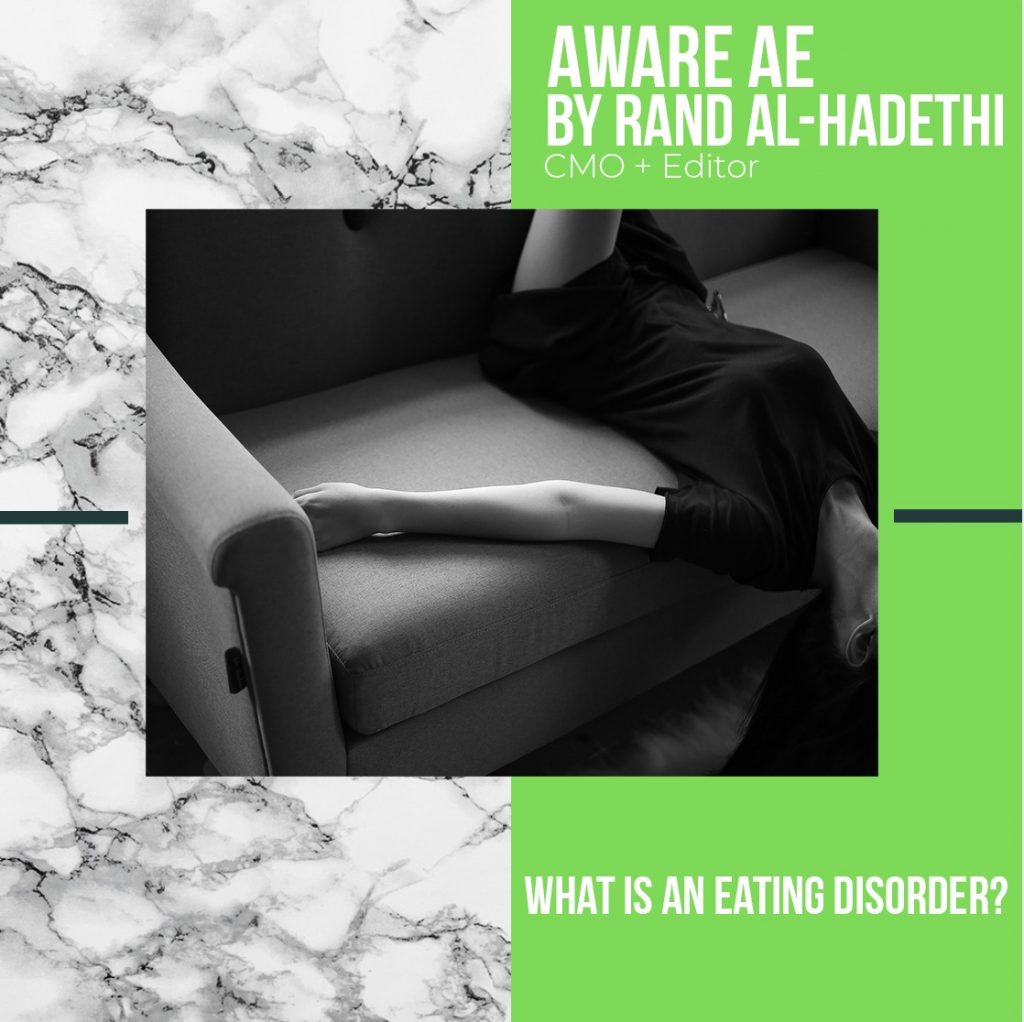Trigger warning: this article discusses eating disorders, weight gain, and weight loss.
Eating disorders are far more complicated than often described. They are mental disorders that manifest into one’s relationship with food and body perception. They are often characterized by severe concern regarding body weight, shape, and eating habits. People who suffer from an ED may either over-eat, under-eat, or over-exercise. Such practices lead to a severely unhealthy lifestyle that put one’s health on the line. If not treated, results may be detrimental – as this is continually affecting the sufferer’s mental and physical agility cohesively. In the region, the topic is pushed to the side and rarely discussed. It is briefly taught in school during biology class, but never seriously taken for its severity.
What Causes an ED?
There is no one cause of an eating disorder; it differs from one person to another based on their personal life experience and how it relates to their body perception. It can form due to bullying, sexual harassment, anxiety, or being exposed to the media’s unrealistic ideals of thinness. These are only a few examples, but common traits between people with eating disorders are impulsivity and extreme perfectionism.
Types of EDs
The most common eating disorders are the ones listed below:
Anorexia
People who suffer from anorexia will often have an obsessive fear of weight gain and will opt for strict regimes that will allow them to maintain an unrealistic, and sometimes skeletal body shape. However, it is essential to note that not all anorexia sufferers look like “walking bones”. There are levels of severity, and its best to notice the disordered eating habits before it reaches the skeletal point. For many, recovery is a rarity at the stage. Anorexics often limit their caloric intake to insufficient numbers and may accompany such a regime with a strenuous workout routine. Anorexia, if untreated, has life-long effects on the brain and organs causing heart conditions, infertility, and at times, death.
Bulimia
Bulimics are often binge eaters that choose self-induced vomiting and excessive exercise to compensate for the calories consumed. Bulimics also fear weight gain and have a distorted image of their body but may not necessarily aim to lose excessive amounts of weight as anorexics do. However, it’s important to note that one can be both Bulimic and Anorexic at the same time. The binge-purge cycle is usually done in secret, as sufferers are often followed by feelings of guilt and shame over their behavior and relationship with food. Based on the severity of one’s case, it depends on the severity of the adverse effects on one’s body. Bulimics who binge-purge on the daily at least once or multiple times will have to deal with gastrointestinal issues, dehydration, and at times heart complications.
Binge-Eating Disorder (BED)
Unlike Bulimics, those who suffer from Binge Eating Disorder, don’t purge or have any compensatory tactics to get rid of the calories. People with BED often lose control over their intake and are sometimes considered to be “emotional eaters”. Note, however, BED leads to obesity for the most part. It is also important to note that there is a vast difference between those who cannot control their portions and seek food as comfort, then those who do not care about their intake. Not all “obese” people suffer from BED, but there is a high chance that BED sufferers are obese. – which leads to point where the issue is taken lightly by society as the mental struggle isn’t visible to the public. BED sufferers also experience feelings of guilt and shame, and their habits can lead to prominent health issues such as cardiovascular diseases.
Bottom Line
Eating Disorders can be tricky to spot on someone, especially if they hide it well. But it’s essential to keep a close eye on your loved ones and make sure they have a healthy mentality that allows them to lead a healthy life. Anorexia is often the easiest to detect, especially when one’s weight reaches a low point, but that doesn’t mean that Bulimia and BED are less relevant. The common denominator between all is the mental struggle that accompanies these physique/weight-related issue. Eating Disorders can stem from several mental-related problems such as trauma and anxiety. – Which is why a personalized recovery plan is best; there is no cookie-cutter solution. It is a long process that needs patience from both the sufferer and the healer. Educating yourself about eating disorders will help you understand more of the issue, but it’s also vital to listen to each story and offer support without forcing it.
